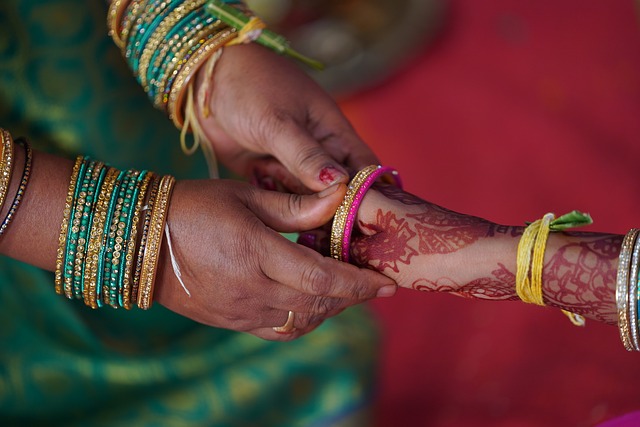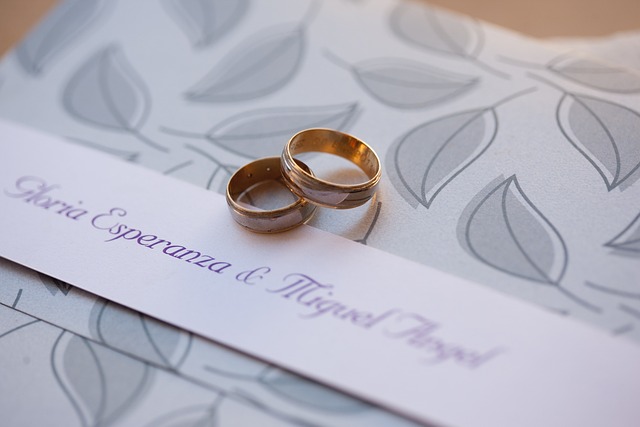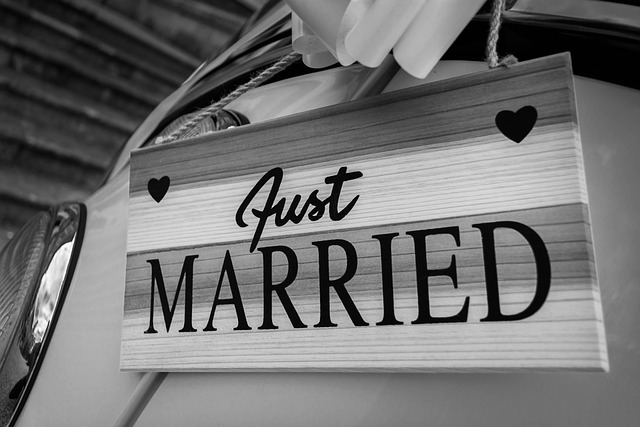In the United Kingdom, a marriage certificate translation must be conducted by a certified translator recognized by authoritative bodies like the Institute of Translation and Interpreting (ITI) or the Chartered Institute of Linguists (CIOL). This is essential for recognizing marital status, crucial for legal proceedings such as surname changes, claiming rights, visa applications, and citizenship. The translation must be accurate and legally compliant to ensure acceptance within the UK's legal system. In cases where couples are married abroad, their marriage certificate translations may also require an Apostille endorsement under the Hague Apostille Convention for UK recognition. Accredited translators provide precise translations that facilitate the acceptance of marital status by UK authorities and international entities, ensuring a seamless experience in legal processes involving immigration, name changes, and citizenship applications.
navigating the legal landscape of the United Kingdom can be a complex task, especially when official documents like marriage certificates require translation. This article delves into the critical aspects of obtaining officially recognized translations for marriage certificates in the UK, ensuring that your documentation meets all necessary legal standards. We will explore the importance of such translations, the role of authorized translators, and the steps to follow for a legitimate translation, including the pivotal role of Apostille on translated documents. Whether you’re a resident or a foreign national, understanding the UK’s protocols for marriage certificate translation is essential for legal and official purposes.
- Understanding the Necessity for Official Translations of Marriage Certificates in the UK
- The Role of Authorized Translators for Legal Documents in the UK
- Recognized Certification for Marriage Certificate Translation Services in the UK
- Navigating Home Office Guidelines on Document Translation for Marriage Certificates
- Accredited Translation Agencies and Their Compliance with UK Standards
- The Process of Getting a Marriage Certificate Translated by Official Channels
- Ensuring Authenticity: The Significance of Apostille on Translated Marriage Certificates in the UK
Understanding the Necessity for Official Translations of Marriage Certificates in the UK

When individuals marry in the United Kingdom and one or both partners are non-native English speakers, obtaining an official translation of the marriage certificate becomes a necessary step. The UK authorities require that all legal documents, including marriage certificates, be accurately translated by professional translators for the records to be officially recognized. This is crucial for several reasons: firstly, it ensures that personal details on the document are precisely conveyed in the recipient’s language; secondly, it allows for the proper verification of marital status, which is essential for various legal processes such as changing surnames, claiming rights, or even applying for visas and citizenship. The translation must be certified by a translator who is accredited by a relevant authority, like the Institute of Translation and Interpreting (ITI) or the Chartered Institute of Linguists (CIOL), to guarantee the document’s legitimacy. This official translation of marriage certificates in the UK is pivotal for international couples to have their marital status legally acknowledged across different countries, thereby facilitating a smooth integration into the UK’s legal and societal framework.
The Role of Authorized Translators for Legal Documents in the UK

In the United Kingdom, legal documents such as a marriage certificate translation UK hold significant weight and require precise and authorized translations to be recognized by authorities. Authorized translators play a pivotal role in this context, ensuring that legal documents are accurately translated into or from English. These professionals are not only fluent in both languages but also well-versed in the nuances of legal terminology, which is crucial for maintaining the document’s integrity and authenticity. The translation must reflect the original text exactly, as any discrepancy could lead to complications with official procedures, such as immigration, citizenship applications, or legal proceedings. The translator’s authorization is typically granted by relevant bodies, such as the Institute of Translation and Interpreting (ITI) or the Chartered Institute of Linguists (CIOL), which vouch for their expertise and reliability in handling sensitive legal documents. This accreditation ensures that the translated marriage certificate and other legal papers are accepted by UK authorities, thereby facilitating smooth transactions within the legal system and public services.
Recognized Certification for Marriage Certificate Translation Services in the UK

When couples marry in the UK and need their marriage certificate recognized in another country, or vice versa, obtaining an official translation is a critical step. The United Kingdom has stringent requirements for certified translations of marriage certificates to ensure they are accepted by government authorities and regulatory bodies. In the UK, a recognized certification for marriage certificate translation services involves translators who are not only proficient in both languages but also hold professional qualifications from reputable institutions or translation bodies such as the Institute of Translation and Interpreting (ITI) or the Chartered Institute of Linguists (CIOL). These certified translators must provide an accurate, faithful, and complete translation that aligns with the UK’s legal standards. The translation should reflect all details present on the original certificate, including names, dates, and other pertinent information, ensuring that it is fully legible and legally recognized by the issuing authority. Additionally, the translation service must include a statement of accuracy, a declaration of the translator’s qualifications, and a stamp or seal of the translation agency to authenticate the document. This level of professionalism and adherence to UK regulations guarantees that the translated marriage certificate will be accepted by UK authorities and foreign embassies or consulates, facilitating international recognition of marital status.
Navigating Home Office Guidelines on Document Translation for Marriage Certificates

Accredited Translation Agencies and Their Compliance with UK Standards

When navigating the legal requirements for translating official documents such as a marriage certificate in the UK, the involvement of accredited translation agencies becomes paramount. These agencies are well-versed in the specific standards and regulations set forth by UK authorities, ensuring that all translated documents meet the necessary criteria for acceptance. The UK’s stringent legal framework necessitates that translations be precise and accurate to be recognized by government bodies and institutions. Accredited translation agencies undergo a rigorous process to earn recognition, which includes adherence to ISO standards such as ISO 17100 and ISO 18587, demonstrating their proficiency in translation services for legal documents. This accreditation ensures that the translations provided, particularly for sensitive documents like marriage certificates, are of the highest quality and reflect the original text’s meaning accurately.
Moreover, these agencies typically have a roster of professional translators who specialize in legal translations, including marriage certificate translation UK. They are adept at navigating the complexities of legal language and cultural nuances that could otherwise lead to misunderstandings or rejections by UK authorities. The compliance of accredited translation agencies with UK standards is not just a formality but a safeguard for individuals and organizations alike, ensuring that their translated documents are legally binding and recognized across various sectors, including legal, governmental, and educational institutions within the UK.
The Process of Getting a Marriage Certificate Translated by Official Channels

Navigating the process of obtaining an official marriage certificate translation in the UK involves several steps to ensure the document is recognized by UK authorities. The first step is to secure the original marriage certificate, which may be required in its untranslated form along with the translated version. Once obtained, individuals must engage a professional translator who is accredited and recognized by the relevant authorities, such as the Home Office or UK Visas and Immigration (UKVI). This translator should have a specific endorsement, often denoted as an ‘APT’ number, indicating their qualifications and ability to translate legal documents.
The translation process itself adheres to strict standards set forth by these authorities. It involves not only converting the text from one language to English but also includes certification of the translator’s qualifications and a statement confirming that the translation is complete and accurate. This certified translation must then be accompanied by the original document or a certified copy thereof. The completed translation, along with the original marriage certificate, should be submitted to the authority requiring the translated document. This ensures that the marriage certificate translation meets all legal requirements within the UK’s official channels, facilitating its acceptance for legal and administrative purposes.
Ensuring Authenticity: The Significance of Apostille on Translated Marriage Certificates in the UK

When individuals marry and their marriage is recognized in multiple countries, the authenticity of marriage certificates becomes a crucial aspect when dealing with UK authorities. The UK, a member of the Hague Apostille Convention, requires that official documents, including marriage certificates, undergo a verification process to be accepted by its authorities. This process involves obtaining an Apostille certificate, which is a form of authentication issued by designated governments officials. For translated marriage certificates, the Apostille serves as a critical endorsement that validates the authenticity of both the original document and the translation provided. It ensures that the document will be recognized across countries that are part of the Convention, facilitating international legal processes such as immigration, changing legal names, or applying for visas.
To engage certified translation services that specialize in marriage certificate translation UK is to ensure a seamless process. These services not only provide accurate translations but also assist with the necessary Apostille endorsement by partnering with relevant issuing authorities. This dual service is essential for individuals who need their marriage certificates to be officially recognized within the UK’s legal framework, ensuring that there are no impediments to the acceptance of their marital status by UK authorities. It is a vital step for anyone intending to marry abroad and then bring the proof of marriage into the UK, as it confirms the document’s authenticity and avoids potential complications in international dealings.
In conclusion, navigating the requirements for official translations of marriage certificates within the UK is a critical step for individuals whose legal documents are not in English. Recognized certification for marriage certificate translation services, adherence to Home Office guidelines, and the application of Apostille on translated documents ensure that these translations meet the necessary standards for acceptance by UK authorities. By engaging with accredited translation agencies compliant with UK standards, individuals can secure official translations that are legally recognized. It is imperative to approach this process with careful consideration to avoid complications in legal matters, immigration, and other official procedures. For those within the UK or international applicants, understanding the necessity for these translations, as well as the role of authorized translators, is essential for legal compliance and the successful validation of marriage certificates.
